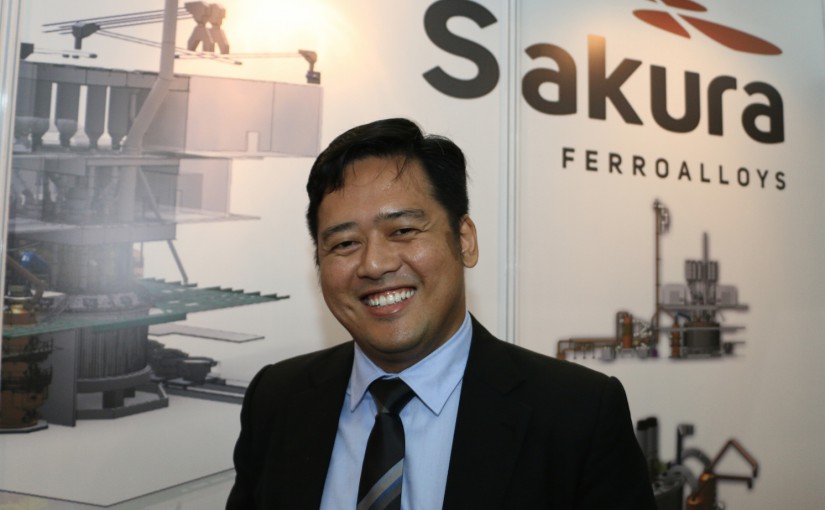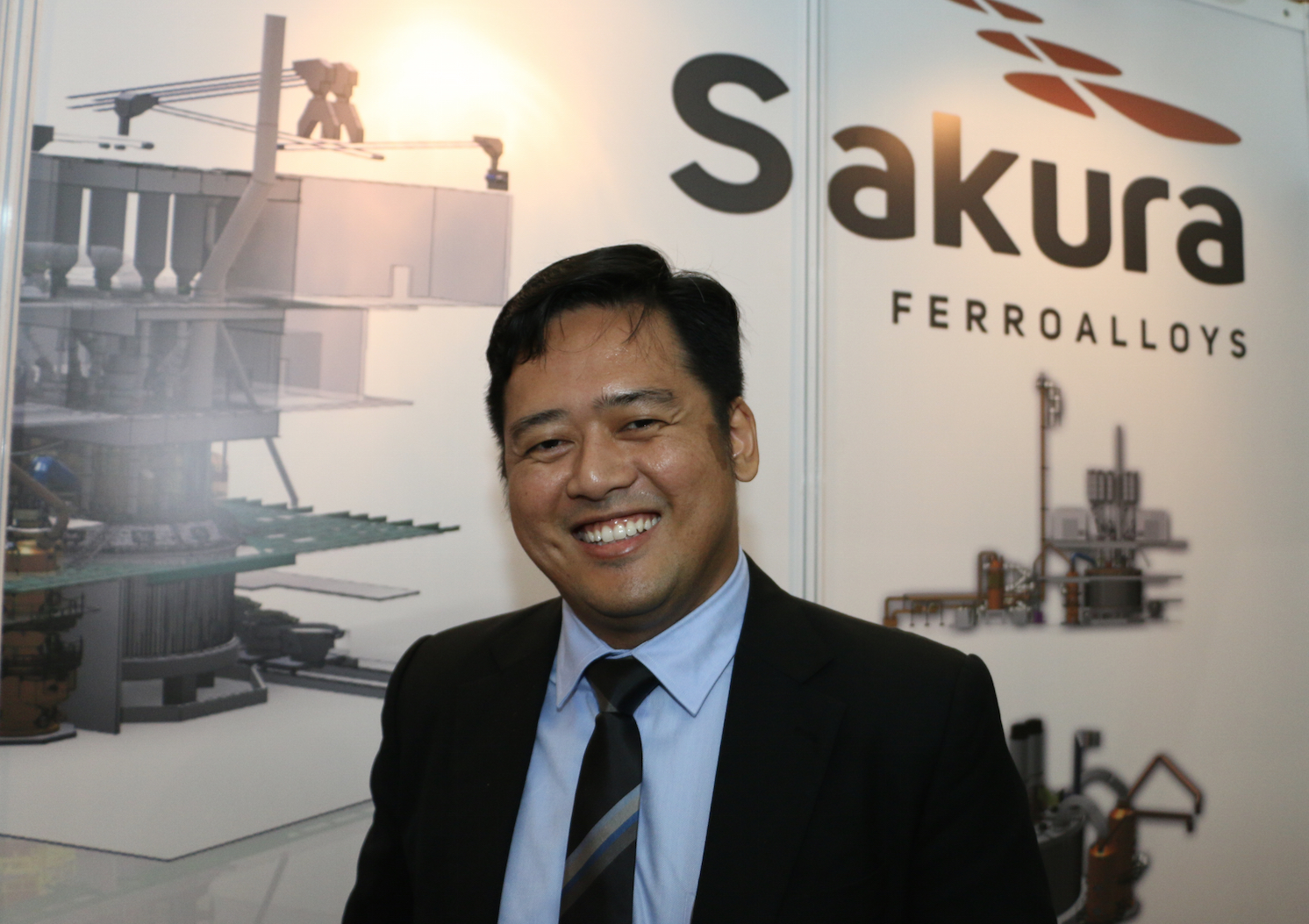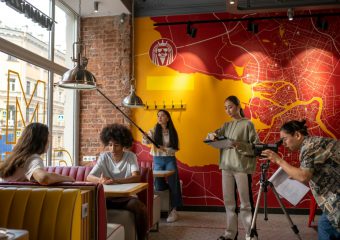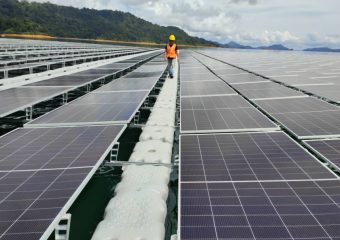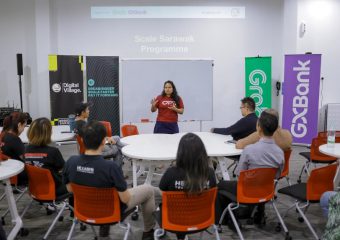Azid Allan, a HR manager with Sakura Ferroalloys, spoke with SarawakYES! recently and provided some insightful tips for young people in Sarawak on how to best prepare themselves for their career.
Q: Please introduce yourself and describe briefly what your company does.
A: My name is Azid Allan. I’m the HR manager for Sakura Ferroalloys, which is a Samalaju-based company. We are constructing two furnaces at the moment to be ready for commission some time in October this year. Fingers crossed. We produce ferro-manganese alloy, which will be used in the steel industry, mostly. Personally, I have 13 years of experience in oil and gas, including eight years of experience with Shell, and prior to that I was with Exxon-Mobil. But now I have jumped into a different industry at Samalaju.
Q: What do you look for in an ideal employee?
A: OK, in an ideal employee it depends on the level. But obviously we look at qualifications … we look for people with experience, but we know that’s a bit scarce. If we look at the situation here at the moment, we have a shortage of supply compared to demand. So we want to find people who can drive themselves, motivate themselves. If you give them the opportunity and they grab it, they will take that opportunity to develop themselves without us telling them that this is how you should develop. What we’ll do is provide the opportunity to develop, but they need to want it. So we look for people with drive, especially. Drive, and the technical know-how, of course.
Q: What’s a good tip for a job seeker looking to work for your company?
A: For job seekers … first is your CV. When it comes to your CV, I’ve seen a lot of people apply for 300 jobs. Three hundred jobs with the same CV, with the same cover letter, just changing the names. Sometimes, they miss something and they actually apply for the same kind of job with a different company but send it to our inbox. So that’s not good. So what job seekers need to do is basically customise their application to the specific job and to the specific company. And share your cover letter, in terms of your experience related to the job.
Q: What is it like to work in Sarawak?
A: I’m a Sarawakian, but I’ve grown up in KL, so my personal experience is I’ve worked in KL, Penang, Bintulu, Miri, and now I’ve come back to Bintulu. What’s the difference? Not really much difference except for the pace of life. The pace of work is pretty much the same, but working in Bintulu, I have more work-life balance. It’s a smaller town, so I get off work at probably 5pm and I get home by about 5.30. I have a lot more time for myself, for my family. In terms of work stress, it’s the same. But you don’t have that much in terms entertainment compared to KL, but then you do have more time for yourself to do your healthy stuff, your hiking, your cycling, and all that.
Q: What questions should students ask themselves when they think about their career path?
A: The first thing I always tell students is, know what you really, really want to do. It doesn’t matter whether your degree is business or your degree is engineering. I have a mechanical engineering degree but I turned to HR almost immediately. But that’s a personal choice to change because there was an opportunity, so I grabbed it.
I know it’s quite difficult to ask yourself in terms of what is it that you really want, but it’s important to try to understand what path you actually want to go on. Even in engineering, you can be on the maintenance side, or you can be on project side, design side and all that. So some students know already but for others, I think they have to explore a bit, come to fairs to understand what’s out there in the market and see what suits them.
Q: Apart from studying in universities or colleges, how else can students with no work experience prepare themselves for the workforce?
A: I think in this day and age, the most important thing is language. Communication. If you think that your communication, business communication, technical communication, is not where you want it to be, then take some language courses. Because most interviews these days are in English. Most companies are international companies. If you can impress them with your language, communication, presentation, that’s your best entry. So I think that’s the first thing that you should do. And by learning communication, it will help you in developing your cover letter, your resumes.
Q: How can students with no work experience make themselves appealing for potential employers?
A: Again, I would actually say CV. OK, typically what you see in the CV is people will write ‘this is my degree, this is what I’ve done for extra-curricular in school, and that’s all I have.’
But what they forget to explain, or to try to explain, is, when you have curricular activities like being the president of a certain community, or being a committee member of a certain event, they forget to explain what kind of experience they have gained and what does that make them in terms of a better person or in terms of employability.
So when it comes to your resume, it’s better to show off what you’re capable of. So it cannot say that ‘I just came out of university, I don’t have experience’. Your whole life is an experience which you can leverage. When you were in school, teachers tell you to do stuff, you don’t know why at the time, but when you go to college you understand why. What it does is help you to develop your own characteristic. So this characteristic, whether it’s leadership, whether it’s teamwork, whether it’s learning, all these help you to build who you are, and those are your key characteristics that people want to see on your CV.
